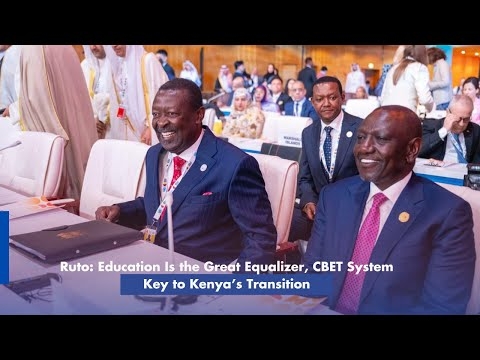The sixth European Union–African Union Summit just ended in Brussels last week. The EU wants to be Africa’s partner of choice. And yes, compared to the United States and China, member countries of the EU have a much longer and deeper relationship with Africa.
The EU was Africa’s largest trade partner in 2020, accounting for 33 per cent of exports and 31 per cent of imports. China was a distant second with 17 per cent of exports and 22 per cent of imports.
However, while the EU is Africa’s largest single trade partner, China and the United States of America are perceived as Africa’s top partners. The EU is not a household name in Africa.
To shore up its image and perception in Africa, the EU has contracted a global advertising company, Ogilvy, for a whopping $7.4 million to raise awareness on what union does for Africans.
The campaign 'African and European Union: Together. Tomorrow. Today', features known African celebrities like Kenya’s award-winning performing artist Henry Ohanga, aka Octopizzo, and radio presenter and social media activist Adelle.
The not so subtle message of the campaign is to demonstrate what the EU does for Africans and to project the continent as a place of hope and opportunity. But the idea of a benevolent, helping EU is old, colonial and patronising.
Granted, the EU is advanced and wealthy, but Europe is ageing and struggling with growth. Africa on the other hand is the future; young and with the fastest-growing middle class in the world. The last thing we need is European largesse.
Africa’s population is projected to rise to more than 4 billion by 2100. Europe’s population is projected to decline by over 30 million by 2100. We will have the largest workforce on the planet. Our mineral and agricultural resources are the envy of the world. It is not surprising that the EU wants in on the future, Africa.
The problem is that the EU is all talk and no action. For example, in 2015 the EU pledged to invest more to improve economic conditions on the continent and offer legal pathways for immigration. Instead, the EU has deployed more brutal measures to stop African immigrants and punitive, even racially-motivated travel bans at the height of the Covid-19 pandemic.
The $170 billion Global-Gateway Africa-Europe investment envelope is staggering and dwarfs China’s Belt and Road investments on the continent. But Africa is not holding its breath. Europe has a dismal record of delivery.
However, there is a win-win opportunity for Africa and Europe. Europe’s relationship with Africa must transition from aid to investment, from the so-called development assistance to economic opportunities.
The EU must not be under pressure to match or exceed China’s investments or stake in Africa. What Africa seeks is an enhanced and reciprocal partnership for equitable and sustainable social and economic growth.
Africa would like to see more linkages between cultural and educational institutions, boosting cooperation and exchange for science and innovation among universities and research institutions.
The views expressed are the writer’s

















